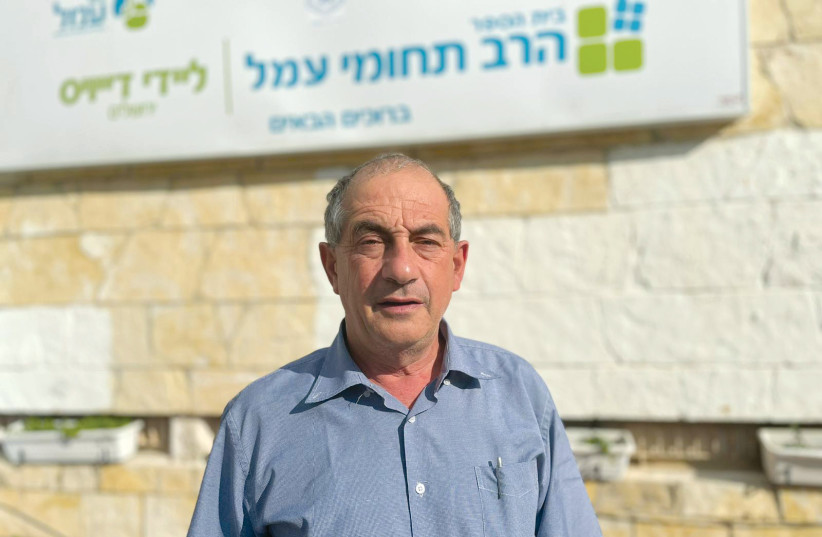
Until last week, it seemed as though nothing would be able to awaken the city’s residents’ interest in the upcoming municipal elections. With a popular mayor and against the backdrop of the war, the general consensus has been that there are more important issues at the moment than the usual fights and mutual backbiting surrounding seats on the city council. It looked like participation in the upcoming municipal election would be among the lowest ever.
And then, a slogan: “Israeli or ultra-Orthodox Jerusalem.” Perhaps not the best choice of words these days, when the majority of Israelis are looking for unity, the catchphrase has nonetheless ignited a small flame that may grow until election day on February 27. After demonstrating local responsibility worthy of appreciation, and overcoming controversies and an impressive amount of ego, five factions have united under the leadership of the mayoral candidate, Adv. Yosi Havilio.
The banner created for this union of Meretz, Avoda, Yesh Atid, Students in Protest, and Hitorerut, in opposition to the hegemony of ultra-Orthodox representatives on the council, ostensibly promotes division and a discourse of hatred.
However, Hitorerut head Adir Schwartz – a significant percentage of whose faction is still on reserve duty in the IDF – explains that “We are after Oct. 7. We told [Mayor] Moshe Lion that this is not the way, and instead we conveyed messages of integration, of broad agreement, and of real concern for Jerusalem – not from a place of exclusion or hatred for one section of the public or other.”
While Schwartz has not explicitly said that he foresees an alliance with Lion’s faction after the elections, he states, “We all have to work together for Jerusalem, for our children, and for the next generations, to do the utmost so that they want to remain here.”

What portfolios do candidates want in the Jerusalem municipal elections?
Officially, nobody is discussing the portfolios they have their sights on for after the elections, but there are no mysteries here. The most coveted by all factions competing for a place on the council are planning and construction, finance, and committees where decisions are made that directly impact the lives of Jerusalem residents, such as land allocation and/or support for organizations.
Controlling the location of schools for the various sectors is an important goal in the eyes of Laura Wharton, a senior member of the Jerusalem Union. The present situation, in which state schools with decreasing numbers of pupils are almost automatically moved over to the ultra-Orthodox educational system, where there is a constant annual increase in students, must stop, says Wharton. The rights of the ultra-Orthodox to education cannot come at the expense of state education.
The issue of women’s representation hovers over these elections, and last week Lion received a delegation requesting his support even after the elections, insofar as the appointment of women to positions as heads of divisions, departments, and more. Lion, who was the first to present a list consisting of 50:50 women and men, promised to do everything he could to continue to promote women. However, his partners in the current coalition – (and perhaps also in the coalition after February 27), the ultra-Orthodox factions do not allow women to compete.
“That’s why it’s so important to encourage Jerusalemites, especially women, to vote in order to change this reality,” says Yael Yechieli, who founded the 50:50 initiative for equality in the representation of women.
An update since last week’s “Elections Diary”: Deputy Mayor Arieh King’s list does in fact include a woman, attorney and international advocacy activist Deborah Srour-Politis, who specializes in international law and represents families affected by terrorism in international tribunals. She is third on the list after Dor Levy, a Kiryat Hayovel resident and chairman of the Yuval community center.
King emphasizes that his mission in the municipality is to act on behalf of all the city’s residents and that his work with those in east Jerusalem is only part of his activities as a council member. King, 50, is a graduate of elite IDF units and serves in the reserves. He has a bachelor’s degree in Islam and the Middle East, was the first Jewish resident of the Mount of Olives, and founded the Ma’aleh Zeitim neighborhood, where some 1,000 Jews reside.■
